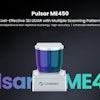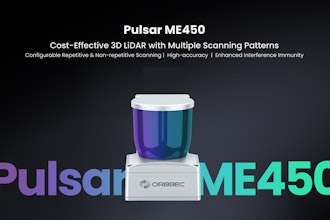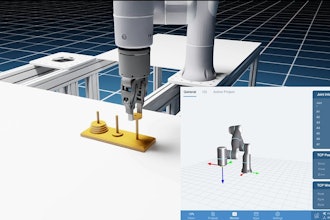Manufacturing companies are realizing the importance of data collection and analytics to remaining competitive in the industry. Improving business processes, finding operational efficiencies, and transforming business models all rely on data collection. As a result, manufacturing companies are increasing their investments in this area and shifting their focus to solution providers that offer local solutions to enterprise-level problems.
Cost Savings
Over the years, manufacturing companies have reduced costs by implementing lean and Six Sigma programs. Those two programs, in particular, have enabled manufacturers to improve on yield and quality as well as reduce variability and waste in production processes. However, despite lean programs, some industries—including the mining, chemical, and pharmaceutical industries—still experience significant variability. Because of the number of processes involved in production, and their complexity, diagnosing and correcting process flaws requires a more granular approach.
An ideal approach is advanced analytics, the application of mathematical and statistical tools to business data in order to assess and improve practices. Managers in the manufacturing industry can use advanced analytics to assess historical process data and identify relationships and patterns among discrete inputs and processes. This data is then used to optimize the factors that have been shown to significantly impact yield.
A manufacturing company can use real-time, shop floor data as well as sophisticated statistical assessments. Manufacturers can take what were once isolated data sets, aggregate the data, and then analyze it to reveal critical insights. One example is a biopharmaceutical manufacturing company that produces hormones, vaccines, and blood components. These products use live, genetically engineered cells and require simultaneous monitoring of more than 200 variables for ingredient and final product purity.
However, two batches of a specific substance that have been produced using identical processes can have a yield variation of 50 to 100 percent. That huge variability can result in product quality and capacity issues, which can lead to increased scrutiny by industry regulators. Targeted data analytics can show the cause of the variables, and with such information, the biopharmaceutical manufacturer can change its processes to eliminate the waste and reduce production costs.
Offer Insight to the Manufacturing Process
Advanced analytics can help a manufacturing company unearth opportunities to increase production yields. Even after years in business, when it seems all possible process improvements have been implemented, there is still room for improvement. This potential can be revealed through data collection.
According to McKinsey, a data analysis showed that a mining company’s best performance occurred on days when oxygen levels at the mine were at their peak. To that end, the mining company altered their process of leach recovery, increasing the average yield by 3.7 percent over a period of three months. This increase translated to a $10–20 million yearly profit with no additional capital investments.
Improved Customer Satisfaction
For a manufacturing company to meet the needs of their customers, they must first find out what their customers are looking for. The only way to do this is to get data on customer preferences. To streamline this information collection process, manufacturing companies can use online forms and turn the collected responses into editable PDF documents, which can easily be shared with management.
After collecting this information, the manufacturer can analyze it to find the commonalities and differences between customers. Though the company may not be able to meet all requirements immediately, they can still do their best to ensure that customers' needs are satisfied and that they maintain brand loyalty.
One manufacturer that uses data collection and analytics to meet customer expectations is BMW Group. The company uses big data to analyze information from manufacturing outlets and dealerships across the globe. The company's prototypes can have more than 15,000 data points. Before full production begins, BMW tests the prototype cars, identifies any faults using big data analytics, and proceeds to fix the issues. The end result—high-quality cars that cost less to manufacture and require fewer repairs.
With more manufacturing companies competing to gain market control, acquiring market insights is critical. Manufacturers are all looking to get the right product to the market at the right price and at the right time. Data collection and analysis offer insights that can significantly help management in making the right strategic decisions to achieve tangible results.
Annabel Maw is a Marketing Communications Manager at JotForm.























